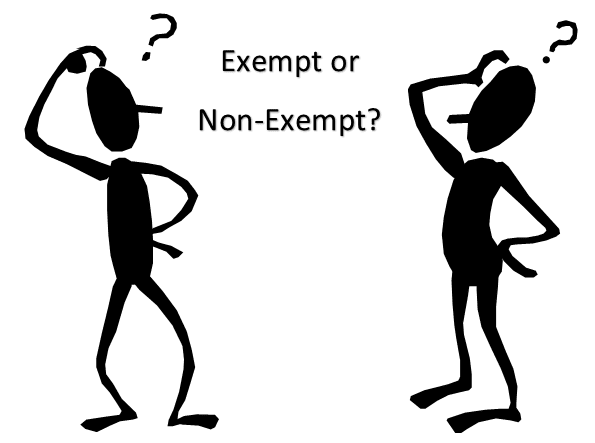The Fair Labor Standards Act governs most types of jobs in the US. There are some types of jobs, however, in some industries that are not covered by the FLSA either because they are governed by some other labor law or for other reasons (these are the jobs listed in list 1). Additionally, there are some jobs that are covered but are exempt from overtime rules (these are the jobs in list 2).
Most jobs that are covered by the FLSA are not exempt and so employees must be paid overtime and make at least minimum wage. The FLSA website lists the following exclusions.
List 1 – The following are examples of employees exempt from both the minimum wage and overtime pay requirements:
- Executive, administrative, and professional employees (including teachers and academic administrative personnel in elementary and secondary schools), outside sales employees, and certain skilled computer professionals (as defined in the Department of Labor’s regulations) 1
- Employees of certain seasonal amusement or recreational establishments
- Employees of certain small newspapers and switchboard operators of small telephone companies
- Seamen employed on foreign vessels
- Employees engaged in fishing operations
- Employees engaged in newspaper delivery
- Farm workers employed on small farms (i.e., those that used less than 500 “man‑days” of farm labor in any calendar quarter of the preceding calendar year)
- Casual babysitters and persons employed as companions to the elderly or infirm
List 2 – The following are examples of employees exempt from the overtime pay requirements only:
- Certain commissioned employees of retail or service establishments
- Auto, truck, trailer, farm implement, boat, or aircraft salespersons employed by non‑manufacturing establishments primarily engaged in selling these items to ultimate purchasers
- Auto, truck, or farm implement parts‑clerks and mechanics employed by non-manufacturing establishments primarily engaged in selling these items to ultimate purchasers
- Railroad and air carrier employees, taxi drivers, certain employees of motor carriers, seamen on American vessels, and local delivery employees paid on approved trip rate plans
- Announcers, news editors, and chief engineers of certain non‑metropolitan broadcasting stations
- Domestic service workers who reside in their employers’ residences
- Employees of motion picture theaters
- Farmworkers
Figuring out where your employees fall can be tricky. Refer to the FLSA pages for more information.
Timesheets.com tracks both types of employees – exempt and non-exempt. Give us a call to help you get your account set up or follow this link to get started on your own!






4 Responses